|
|
|
|
|
|
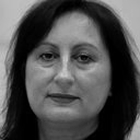 |
| INVITED |
|
 |
| . |
|
|
Valbona Aliko
NanoAlb, University of Tirana, Albania
Invited – Plenary Session
Valbona Aliko, Full Professor in Animal EcoToxicoPhysiology, Department of Biology, Faculty of Natural Sciences, University of Tirana, Albania. Leader of NanoToxicology NanoAlb Research Group and Coordinator of NanoAlb PhD Programme-Quartz, Albanian Academy of Science. Research interests focused on studying the mechanisms of adaptive response of animals to environmental stress (heavy metals, pesticides, nanoparticles), by using multi-biomarker approach and designing & bio-functionalizing biosensors with possible application in monitoring environmental pollution and biota health
|
|
|
|
|
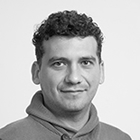 |
| SCHOOL |
|
 |
| . |
|
|
Ruslán Alvárez
ICN2, Spain
Speaker - School
Dr. Ruslan Álvarez Diduk obtained his PhD in chemistry at the Universidad Autónoma Metropolitana (México) in 2014. From 2015 to date, he works as a postdoctoral researcher in the Nanobioelectronics and Biosensors group (Prof. Merkoçi). His research focuses on the development of novel nanostructured biosensors using both optical and electrochemical platforms, which are based on point-of-care and low-cost systems. He is also involved in exploring new and novel routes for nanoparticle synthesis, graphene reduction and laser patterning, and the development of readout platforms including smartphone based biosensing
|
|
|
|
|
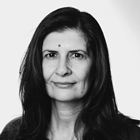 |
| INVITED |
|
 |
| . |
|
|
Ulku Anik
Mugla Sitki Kocman University, Turkey
Invited – Plenary Session
Ülkü Anık received her Ph.D. degree in Analytical Chemistry from Ege University in 2003. Currently, she is a Full Professor at the Department of Chemistry, Faculty of Science, Muğla Sıtkı Koçman University (MSKU). She is also the founder and the director of Sensors, Biosensors and Nano-diagnostic Systems Lab in MSKU. Her current research focuses on nanomaterial modified/plain diagnostic platforms, biosensors, nanomaterial based electrochemical/bioelectrochemical systems and biofuel cells.
|
|
|
|
|
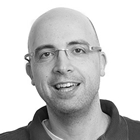 |
| KEYNOTE |
|
 |
| . |
|
|
Jordi Arbiol
ICREA / ICN2, Spain
Keynote – Plenary Session
ICREA Prof. Jordi Arbiol was born in Molins de Rei (Catalonia) in 1975. Having graduated in physics from the Universitat de Barcelona (UB) in 1997, he went on to obtain his PhD in transmission electron microscopy as applied to nanostructured materials from this same university in 2001, earning the European Doctorate label in recognition of the project’s European dimension, as well as the university’s extraordinary doctorate award. He then held the position of assistant professor at the UB, before becoming a group leader at the Institut de Ciència de Materials de Barcelona in 2009, as well as the scientific supervisor of this institute’s electron microscopy facility. It was here that he began his personal and professional mission to improve Barcelona’s baseline electron microscopy infrastructure, an endeavour he has continued to pursue at the ICN2, which he joined in 2015 as the leader of the Advanced Electron Nanoscopy Group
|
|
|
|
|
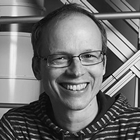 |
| KEYNOTE |
|
 |
| . |
|
|
Adrian Bachtold
ICFO, Spain
Keynote – Plenary Session
Adrian Bachtold graduated Ingénieur Physicien at the Ecole Polytechnique Fédérale de Lausanne in 1996 and obtained his PhD from the University of Basel in 1999. He was a post-doctoral researcher at Berkeley and Delft. In2001 he became Chargé de recherche CNRS at the Ecole Normale Supérieure in Paris. In 2005 he went to Barcelona as a CSIC professor and later on as a ICN professor at the Catalan Institute of Nanotechnology. In 2012 he joined the Institute of Photonic Sciences as an ICFO professor. He is the principal investigator of the Quantum Nano-Mechanics group. He is the recipient of several awards, including the IBM award of the Swiss Physical Society, the medal of the CNRS, and an EURYI award. He was awarded the ERC starting grant in 2011 and the ERC advanced grant in 2016.
|
|
|
|
|
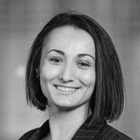 |
| KEYNOTE |
|
 |
| . |
|
|
Larysa Baraban
Helmholtz-Zentrum Dresden-Rossendorf, Germany
Keynote – Plenary Session
Dr Larysa Baraban completed her PhD in the University of Konstanz, at the Department of Physics. After a stint as a postdoctoral researcher in the University of Pierre and Marie Curie, France, she moved to TU Dresden, Germany, where she worked as a postdoctoral research fellow from.Currently, she is a head of the research group ‘Nano-Microsystems for Life Sciences’ at the Helmholtz Center Dresden Rossendorf, in Germany, and holds the ERC Consolidator Grant.Her background includes the research of multiple aspects of materials science, microsystems and biotechnology, i.e. bionanosensorics integrated in microfluidic systems, novel artificially designed micro- and nanodevices.
|
|
|
|
|
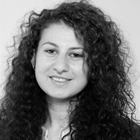 |
INVITED
Industrial Forum |
|
 |
| . |
|
|
Marinela Barci
Huawei Technologies R&D Belgium N.V., Belgium
Invited - Industrial Forum
Marinela Barci was born in Mat, Albania. She received the B.Sc. degree in Electronic Engineering from the Politecnico di Torino, in 2010, the joint International M.Sc. degree in Micro and Nanotechnologies from the Politecnico di Torino, Grenoble Institute of Technology, France, and the École Polytechnique Fédérale de Lausanne, Switzerland, in 2012. She prepared her Master's thesis at IBM T.J. Watson Research Center in New York, USA. She received the Ph.D. degree from Université Grenoble Alpes, France, in collaboration with the Commissariat á l’Énergie Atomique—Laboratoire d’Électronique et de Technologie de l’Information, in 2016. She worked as Postdoctoral Researcher at imec, Belgium and Senior Device engineer at ARM in the Memory team. She is currently a Principal Engineer at Huawei, where her main focus is bridging the gap between academia-research center and industry to bring emerging memory technology to market.
|
|
|
|
|
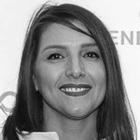 |
| INVITED |
|
 |
| . |
|
|
Mimoza Basholli
University of Pristina, Republic Kosovo
Invited – Plenary Session
Mimoza Basholli Salihu is Associate Professor in Pharmaceutical Technology and Biotechnology, and Head of Department, Dpt.of Drug analysis and Pharmaceutical Technology, Faculty of Medicine, University of Prishtina. She received her phD degree at University of Prishtina in collaboration with Faculty of Life Sciences, University of Vienna, Austria. Mimoza was head of several scientific projects and has published several peer-review research articles. Currently she is head of research group in several scientific networks EPTRI (European Paediatric Tranlsational Research Infrastructure), NanoAlb (Albanian NanoScience and Nanotechnology Unit, Academy of Science, Albania), and is guest editor at Special Issue "Advances in Age Related Drug Delivery", Pharmaceutics MDPI. Her research group has official scientific collaborations with Institute of Pharmaceutical Science, University of Graz, Austria and Dipartimento Di Farmacia - Scienze Del Farmaco, Università degli Studi di Bari Aldo Moro, Italy. The research focus of her research group is on development of novel nano-drug delivery systems for encapsulation of bioactive compounds in order to improve their bioactivity and stability, leading to increased therapeutic efficacy.
|
|
|
|
|
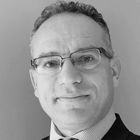 |
| KEYNOTE |
|
 |
| . |
|
|
Dhimiter Bello
UMass Lowell, USA
Keynote – Plenary Session
Dhimiter Bello, Sc.D., MSc, is the Associate Dean for Research and Graduate Studies in the Zuckerberg College of Health Sciences at University of Massachusetts Lowell. He is also a tenured Professor of Toxicology in the Dept. of Biomedical and Nutritional Sciences. Dr. Bello’s research investigates in part the toxicology of advanced materials and technologies and resulting human diseases using both in vitro and in vivo testing platforms, and is guided by mechanistic injury pathways paradigms. Prof. Bello is an active member of the Harvard Center for Nanotechnology and Nanotoxicology, the Harvard-NIEHS nano safety center, and the UMass Lowell Center for High-rate Nanomanufacturing. He has published over 100 peer-reviewed articles, five book chapters, and invited editorials and has an extended network of collaborators. For a decade he served as associate editor of Nanotoxicology and Annals of Work Exposures and Health. He has served as a reviewer for numerous peer-reviewed journals and in several grant review panels. His current h-index is 38; i-10th index 76; and has 4200 citations. His education background includes a BSc in chemistry from University of Tirana, an MSc in Environmental Sciences and Policy (U Manchester, UK), and an ScD in exposure sciences (UMass Lowell), followed by a post-doctoral fellowship at the Harvard School of Public Health
|
|
|
|
|
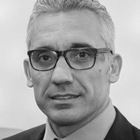 |
KEYNOTE
Industrial Forum |
|
 |
| . |
|
|
Francesco Bonaccorso
BeDimensional, Italy
Keynote - Industrial Forum
Francesco Bonaccorso is the Scientific Director of BeDimensional SpA and Visiting Scientist at the Istituto Italiano di Tecnologia. He gained the PhD from the University of Messina after working at the Italian National Research Council, the University of Cambridge and the University of Vanderbilt. In 2009 he was awarded a Royal Society Newton International Fellowship at Cambridge University, and a Fellowship at Hughes Hall, Cambridge, obtaining a MA. He was responsible in defining the ten years scientific and technological roadmap for the Graphene Flagship. He is now Deputy of the Innovation of the Flagship. He was featured as 2016 Emerging Investigator by J.Mater.Chem.A and in 2019 by ChemPlusChem. His research interests encompass both the fundamental understanding and solution processing of novel nanomaterials and their technological applications. He authored/co-authored more than 120 publications and 12 patents.
|
|
|
|
|
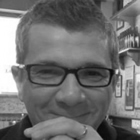 |
INVITED
Industrial Forum |
|
 |
| . |
|
|
Paolo Bondavalli
Thales Research & Technology, France
Invited - Industrial Forum
Dr Hdr Paolo Bondavalli is in charge of nanomaterials transverse topic at Thales Research and Technology and French Research Agency Responsible of Material Topic. He has more than 20 years of experience on nanomaterials and 18 on carbon nanomaterials (graphene, CNTs). Graduated from University of Parma (Italy) in 1995 (Physics). PhD from INSA of Lyon (EEA) in 2000. HDR from Paris Saclay (2011). He has published two book as single authors dealing with 2D materials. He has just organized a symposium at the MRS Spring meeting 2022 on 2D topological matter.
|
|
|
|
|
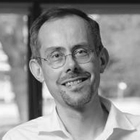 |
INVITED
Industrial Forum |
|
 |
| . |
|
|
Vincent Bouchiat
Grapheal, France
Invited - Industrial Forum
Vincent Bouchiat is the CEO of Grapheal, a company spin-off from Neel Institute focusing on bioelectronic and healthcare applications of graphene. He is on leave from the French National Research Center (CNRS) at Grenoble, where he has a permanent position since 1997. He received an engineer degree from ESPCI in 1993 and a Master Degree from the University of Paris, Pierre & Marie Curie the same year. He has completed his Ph.D. on quantum devices at CEA-Saclay in 1997 under supervision of Michel Devoret and Daniel Estève. He got the Visiting Miller Professorship Award from University of California, Berkeley in 2007, and the Lee Hsun Research Award from the Chinese Academy of Sciences (2017). He co-authored more than 100 publications with over 4000 citations and hold 9 international patents.
|
|
|
|
|
 |
| KEYNOTE |
|
 |
| . |
|
|
Cinzia Casiraghi
University of Manchester, UK
Keynote – Plenary Session
Dr Cinzia Casiraghi received her BSc and MSc in Nuclear Engineering from Politecnico di Milano (Italy) and her PhD in Electrical Engineering from the University of Cambridge (UK) in 2006. In 2005 she was awarded with an Ernest Oppenheimer Early Career Research Fellowship, followed by the Alexander von Humboldt Research Fellowship in 2007 and the prestigious Sofja Kovalevskaja Award, won in 2008. This Prize is given to young, cutting-edge researchers, providing them with risk capital to pursue innovative projects and establish their own lab at a very early stage in their careers. This allowed her to become Junior Group Leader at the Physics Department of the Free University Berlin (Germany). In 2010 she joined the School of Chemistry, at the University of Manchester (UK). She is also member of the Athena Swan committee of the School of Chemistry.
|
|
|
|
|
 |
| SCHOOL |
|
 |
| . |
|
|
Alejandro Chamorro
University of Rome Tor Vergata, Italy
Speaker - School
Alejandro Chamorro Garcia graduated in Biotechnology and Biochemistry at the Autonomous university of Barcelona (UAB) in 2009. He finished his mater in Nanotechnology at the Centro Nacional de Microelectronica in Barcelona (CNM-IMB) in 2011. He obtained his PhD in Biotechnology from the UAB, performing his research work at the Catalan Institute of Nanoscience and Nanotechnology (ICN2) in 2015. Then he worked for 2 years developing biosensors and bioassays in a small biotech company, Nanoimmunotech S.L. (Vigo, Spain). In 2018 joined University of California Santa Barbara as outgoing Marie Curie Fellow to work in the modulation of response properties of receptors in biosensors, work that he continued in the return phase at University of Rome Tor Vergata. Currently he is a postdoctoral researcher at University of Rome Tor Vergata with an Umberto Veronesi postdoctoral fellowship working in nature inspired nano-switches and sensing systems for easy and quick monitoring of chemotherapeutical drugs
|
|
|
|
|
 |
| KEYNOTE |
|
 |
| . |
|
|
Gianni Ciofani
Italian Institute of Technology, Italy
Keynote – Plenary Session
Gianni Ciofani (born in La Spezia, Italy, on August 14th, 1982) is Senior Researcher Tenured at the Italian Institute of Technology -IIT-, where he is Principal Investigator of the Smart Bio-Interfaces Research Line (Pontedera, Italy), a group of about 20 people including Researchers, Post-Docs, Ph.D. students, and M.Sc. students. He received his Master Degree in Biomedical Engineering (with honors) from the University of Pisa, Italy, in July 2006, and, in the same year, his Diploma in Engineering (with honors) from the Scuola Superiore Sant’Anna of Pisa, Italy. In January 2010, he obtained his Ph.D. in Innovative Technologies (with honors) from the Scuola Superiore Sant’Anna. From January 2010 to August 2013 he was Post-Doc at the IIT, Center for Micro-BioRobotics @SSSA, where, from September 2013 to October 2015, he was Researcher in the framework of the Smart Materials Platform. From October 2015 to October 2019 he was Associate Professor at the Polytechnic University of Torino (Italy), maintaining at the same time his research activity in IIT, where he is Senior Research Tenured since November 2019.
|
|
|
|
|
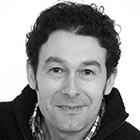 |
| INVITED |
|
 |
| . |
|
|
Alfredo de la Escosura-Muñiz
University of Oviedo, Spain
Invited – Plenary Session
Alfredo de la Escosura-Muñiz holds a PhD in Chemistry (2006) from the University of Oviedo (Spain). Most of his post-doctoral career has been spent at Prof. Merkoçi’s group at ICN2 (Barcelona, Spain), where he specialized in Nanobiosensors. He has participated in +25 national and international projects and is the coauthor of over 80 scientific publications (+2800 citations; h-index: 31) and four patents. As of June 2018 he holds a Ramon y Cajal Research Fellowship in the Nanobioanalysis Group, Department of Physical and Analytical Chemistry, University of Oviedo, where he is also a Lecturer in Chemistry. His research interests focus on the development of biosensing systems based on nanoparticles and nanochannels for point-of-care diagnostic applications
|
|
|
|
|
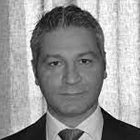 |
| KEYNOTE |
|
 |
| . |
|
|
Nunzio Denora
Università degli studi di Bari Aldo Moro, Italy
Keynote – Plenary Session
|
|
|
|
|
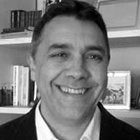 |
| INVITED |
|
 |
| . |
|
|
Fabio Di Francesco
University of Pisa, Italy
Invited – Plenary Session
Fabio Di Francesco received a degree in physics and PhD in bioengineering from the University of Pisa, where he is currently associate professor in analytical chemistry. His research interests are at the interface of analytical technologies, nanomaterials and medicine, with an emphasis on the identification, in easily accessible body fluids (breath, oral fluid, sweat …), of chemical markers with clinical interest and the development of sensors and low cost technologies for the translation of research results into the clinical practice and everyday life
|
|
|
|
|
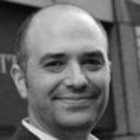 |
| KEYNOTE |
|
 |
| . |
|
|
Gjergj Dodbiba
The University of Tokyo, Japan
Keynote – Plenary Session
|
|
|
|
|
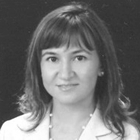 |
| KEYNOTE |
|
 |
| . |
|
|
Arzum Erdem Gürsan
Ege University, Turkey
Keynote – Plenary Session
Arzum Erdem received Bachelor in Pharmacy from Ege University, Izmir, Turkey in 1993. She received the master degree in 1996 and PhD degree in 2000 in the Department of Analytical Chemistry at the same university in Izmir. She worked as an Assistant Professor from 2000 to 2003 and as an Associated Professor from 2003 to 2009 at the Analytical Chemistry Department of the Faculty of Pharmacy in Ege University. She has been working at the same department as a Full Professor since 2009. Arzum Erdem was awarded by the Turkish Academy of Sciences (TÜBA) as the one of highly skilled young twenty Turkish scientists elected in 2001 under the TÜBA-GEBİP fellowship programme. She received "Juniour Science Award" in 2006, and "Science Award" in 2015 given by The Scientific and Technological Research Council of Turkey (TÜBİTAK). She was elected as the Associate member of TÜBA in 2007, and elected as the Principal member of TÜBA in 2016. Arzum Erdem was elected as the Special Committee member of Association of Academies and Societies of Sciences in Asia (AASSA)- Women In Science and Engineering (WISE) for the period of 2017-2019 and 2019-2021. She was elected as a fellow of Royal Society of Chemistry (FRSC) in December, 2017. Prof. Arzum Erdem has authored or co-authored more than 190 papers in refereed journals and conference proceedings, she has given more than 20 invited talks in international meetings and conferences, is the co-author of 15 book chapters and review papers. She has received 6,625 (without self-citations: 5316) citations according to the records on Web of Science (WoS) obtained in October 2021 with h-index: 43. Prof. Arzum Erdem has initiated many national and international collaborative research on development and applications of electrochemical (bio)sensors based on drug, enzyme and nucleic acids. Her recent research is centred on the development of novel transducers and chemical and biological recognition systems by using different nanomaterials (e.g, graphenes, magnetic nanoparticles, carbon nanotubes, gold and silver nanoparticles, dendrimers, nanowires, nanorods etc.) designed for electrochemical sensing of nucleic acid (DNA, miRNA) hybridization, and also the specific interactions between drug and DNA, or protein and DNA, aptamer-protein and also the development of integrated analytical systems for environmental monitoring, food safety, industry and biomedical monitoring.
|
|
|
|
|
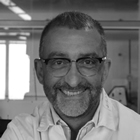 |
| KEYNOTE |
|
 |
| . |
|
|
Jesús Alberto Escarpa Miguel
University of Alcalá, Spain
Keynote – Plenary Session
Dr. Alberto Escarpa is Full Professor of Analytical Chemistry at the University of Alcalá. He is the head of the research group “Analytical Miniaturization and Nanotechnology” since 2003. His main research interests are analytical miniaturization and nanotechnologies, with special focus on electrochemical microfluidics, and micromotors. He has co-authored more than 200 articles in leading international peer-review journals, and several books and book chapters, yielding an h-index of 51. He has given several invited lectures at the most prestigious conferences in the field of analytical micro and nanotechnologies. He has been included in Stanford University's list of the 2% of the most cited scientists in the world (2019, 2020). Since 2019 he is Editor in Chief for Microchimica Acta.
|
|
|
|
|
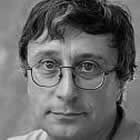 |
| KEYNOTE |
|
 |
| . |
|
|
Vladimir Falko
National Graphene Institute, University of Manchester, UK
Keynote – Plenary Session
Vladimir Fal’ko MAE is condensed matter theorist who made fundamental contribution towards understanding of physical properties of two-dimensional (2D) materials. He is currently Director of National Graphene Institute at Manchester and the 2D Materials Theme Lead in the UK’s Henry Royce Institute for Advanced Materials.
|
|
|
|
|
 |
| PLENARY |
|
 |
| . |
|
|
Andrea Ferrari
Cambridge Graphene Centre, University of Cambridge, UK
Plenary Talk
Andrea C. Ferrari earned a PhD in electrical engineering from Cambridge University, after a Laurea in nuclear engineering from Politecnico di Milano, Italy. He is Professor of Nanotechnology and the Director of the Cambridge Graphene Centre and of the EPSRC Centre for Doctoral Training in Graphene Technology. He is Fellow of Pembroke College, the American Physical Society, the Institute of Physics and the Materials Research Society. His research interests include nanomaterials growth, modelling, characterization, and devices. He was awarded the Royal Society Brian Mercer Award for Innovation, the Marie Curie Excellence Award, the Philip Leverhulme Prize, The EU-40 Materials Prize, The Royal Society Wolfson Research Merit Award. He is also the Chairman of the Executive Board of the EU Graphene Flagship
|
|
|
|
|
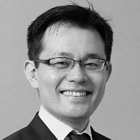 |
| PLENARY |
|
 |
| . |
|
|
Toshinori Fujie
Tokyo Institute of Technology, Japan
Plenary Talk
Toshinori Fujie received his PhD (Engineering) from the Department of Life Science and Medical Bioscience, Waseda University in 2009. He spent postdoctoral periods at the Italian Institute of Technology (2010-12) and Tohoku University (2012-13). In 2013, he joined the Faculty of Science and Engineering, Waseda University as an Assistant Professor. In 2016, he moved to the Waseda Institute for Advanced Study (WIAS). He also served as a PRESTO researcher of the Japan Science and Technology Agency (2015-2019). From November 2018, he moved to the current institute as a tenure-track Associate Professor (Lecturer). In June 2021, he was promoted to Associate Professor. His research interests are dedicated to the development of nano/micro technologies for diagnostics and therapeutics in the treatment of intractable diseases by utilizing polymeric materials, molecular assembly, tissue engineering, bioelectronics and bio-inspired/mimetic engineering.
|
|
|
|
|
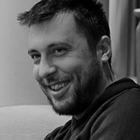 |
| INVITED |
|
 |
| . |
|
|
Theodosis Giousis
University of Ioannina, Greece
Invited – Plenary Session
|
|
|
|
|
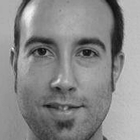 |
| INVITED |
|
 |
| . |
|
|
Bergoi Ibarlucea
TU Dresden, Germany
Invited – Plenary Session
With background in biology and several years of experience in material functionalization and biosensor development, Dr. Bergoi Ibarlucea joined the TU Dresden as postdoc in 2013. Since the end of 2019, he leads the research line of nanoelectronics for sensor technologies at the Chair of Materials Science and Nanotechnology of Prof. Cuniberti, at the same university. Here, he aims at merging the ultrasensitive nature of nanomaterials, the versatility of chemistry and the power of novel data analysis methods to develop innovative tools for biomedical applications.
|
|
|
|
|
 |
| INVITED |
|
 |
| . |
|
|
Andrea Idili
University of Rome Tor Vergata, Italy
Invited – Plenary Session
Andrea Idili is a Tenure-track Assistant Professor at the Department of Chemical Science and Technologies at the University of Rome Tor Vergata. He received his Ph.D. in Analytical Chemistry with full marks under the supervision of Prof. Francesco Ricci at the University of Rome Tor Vergata in 2017. After this period, Dr. Idili did two different postdocs in the group of Prof. Kevin W. Plaxco (University of California Santa Barbara, USA) and Prof. Arben Merkoci (Catalan Institute of Nanoscience and Nanotechnology ICN2, Spain). His current research focuses on the development of novel DNA-based electrochemical and optical sensors able to support the real-time, continuous monitoring of diagnostically relevant molecules both in vitro and in vivo. The importance of his research is highlighted in more than 33 peer-reviewed papers published in high-impact factor journals, 1 patent, and 3 book chapters. He has received several international/national awards and fellowships in recognition of his work, including the “Marie Skłodowska-Curie individual fellowship” (ERC, 2021), “ISSNAF Awards for Young Investigators 2019” (ISSNAF, USA), the “PROBIST postdoctoral fellowship 2018” (BIST, Spain), and the “Canada-Italy Innovation Award 2013” (Embassy of Canada to Italy).
|
|
|
|
|
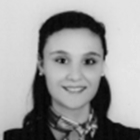 |
| INVITED |
|
 |
| . |
|
|
Pınar Kara Kadayıfcılar
EGE University, Turkey
Invited – Plenary Session
P. Kara finished her Msc (2003) and PhD (2007) at same department in the topic of designs and applications of electrochemical biosensors in the supervision of Prof. M. Ozsoz. After PhD, Kara worked as postdoc (2007 – 2008), Assistant Prof. (2009 – 2011) and Assoc. Prof. ( 2011 – present) in several national and international projects in the same group.2002 Kara worked as a partenr of a” Laboratory in a Box Project” in Freidrich-Alexander University, (Germany) 2004 “Laboratory on a Chip & Laboratory in a Box Project” in Directif GmBH (Germany). And as a postdoc (2009) worked with Barcelona Autonom University, Institute of Catalan Nanotechnology, Nanobioelecronics &Biosensors Laboratory, in the supervision of Prof. Dr. Arben Merkoçi. P. Kara is currently Prof. in Ege University Faculty of Pharmacy, Analytical Chem. Dept. P. Kara research is focused on the design and application of electrochemical bio& nanobio sensors. These bio & nanobiosensors are based on the integration of several biological molecules (DNA, antibodies, cells,enzymes, aptamers..etc) in diagnostics, clinical analysis, environmental monitoring or safety and security.
|
|
|
|
|
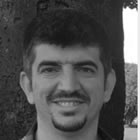 |
| KEYNOTE |
|
 |
| . |
|
|
Coskun Kocabas
The University of Manchester, UK
Keynote – Plenary Session
Coskun completed his BSc (2001) and MSc in Physics (2003) at Bilkent University (Turkey). He received his PhD in Physics (2007) from University of Illinois at Urbana-Champaign (USA). After receiving his PhD, he worked at Harvard University as Postdoctoral Researcher, in Deapartment of Chemistry and Chemical Biology. Between 2009 and 2017, Coskun worked as assistant and associate professor at Bilkent University where he led the group of Smart Materials and Devices. His main research interest includes optoelectronic applications of graphene and other 2D materials. His research aims to understand and engineer electronic and optical responses of emerging 2D materials to fabricate new devices which cannot be realized by conventional semiconducting materials.
|
|
|
|
|
 |
INVITED
Industrial Forum |
|
 |
| . |
|
|
Florensa Kovaci
Ministry of Defence, Albania
Invited - Industrial Forum
|
|
|
|
|
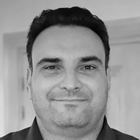 |
| KEYNOTE |
|
 |
| . |
|
|
Emmanuel Kymakis
Hellenic Mediterranean University, Greece
Keynote – Plenary Session
Emmanuel Kymakis is a Full Professor at the Department of Electrical and Computer Engineering at the Hellenic Mediterranean University (HMU) and Vice President of the HMU Research Center. He earned his PhD in electrical engineering from the University of Cambridge in 2003. His multidisciplinary research lies at the interface between nanotechnology and electrical engineering and is centered on the development of printed electronic and photovoltaic devices. He was named as a ChemComm Emerging Investigator and served as a member of the founding GA of HFRI. Ηe is also included in the list of the top 2% of scientists in their respective fields by citation impact. He is currently the Director of the interinstitutional Post-Graduate Program “Nanotechnology for Energy Applications” and serves as the work package leader of Energy Generation of the EU FET-Flagship Initiative Graphene.
|
|
|
|
|
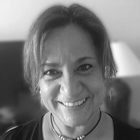 |
| KEYNOTE |
|
 |
| . |
|
|
Monica Lira-Cantu
ICN2, Spain
Keynote – Plenary Session
Monica Lira-Cantu is a Full Professor and Group Leader of the Nanostructured Materials for Photovoltaic Energy Group at the Catalan Institute of Nanoscience and Nanotechnology (ICN2) in Barcelona, Spain. Her research interests are the synthesis and application of nanostructured materials for emerging solar cells like dye-sensitized, hybrid, organic and perovskite solar cells and the integration of different types of energy technologies for self-power electronics and the production of green energy. She has more than 125 publications, including 110 published articles in scientific journals, one book, 10 book chapters, and nine patents. She is a reviewer for more than 30 scientific organizations and more than 50 scientific journals. She worked as a staff chemist for ExxonMobil Research & Engineering (USA), a visiting professor at EPFL (Switzerland) and a visiting scientist at the Center for Advanced Science and Innovation (Japan), Oslo University (Norway), and the Risø DTU National Laboratory for Sustainable Energy (Denmark). She is also a panel member of the ERC Advanced Grant PE11 since 2021 and Fellow of the Royal Society of Chemistry (FRSC) and the Cannon Foundation in Europe. She is currently Editor-in-Chief of APL Energy (AIP Publishing) and Advisory Editorial Board for Discovery Materials and Springer Nature Applied Sciences (Nature); Adv. Energy and Sustainability (Wiley); Chemical Physics Impact (Elsevier) and Matter (Cell Press).
|
|
|
|
|
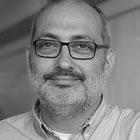 |
| INVITED |
|
 |
| . |
|
|
Lluis F. Marsal
URV, Spain
Invited – Plenary Session
Lluís F. Marsal is Full Professor and Distinguished Professor at the Department of Electronic, Electric and Automatic Engineering of the Universitat Rovira i Virgili, Spain. He obtained his Ph.D. degree in Physics in 1997 from the Universitat Politècnica de Catalunya, Spain. He was postdoctoral researcher at the Department of Electrical and Computer Engineering, University of Waterloo, Ontario, Canada. In 2014, he received the ICREA Academia Award (the highest award for university professors in Catalonia, from ICREA Institute). He is a senior member of the Institute of Electrical and Electronics Engineers and of the Optical Society of America. He is member of advisory and technical committees in several international and national conferences and has been visiting professor at several universities and research institutions. He has co-authored more than 200 publications in international refereed journals, 2 books, 5 book chapters and holds three patents. His current research interests focus on organic and hybrid solar cells and nanostructured materials for optoelectronic devices and low–cost technologies based on micro- and nanoporous materials for biosensing and bio-applications.
|
|
|
|
|
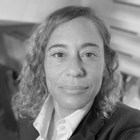 |
| KEYNOTE |
|
 |
| . |
|
|
Elena Martínez Fraiz
IBEC, Spain
Keynote – Plenary Session
Dr. Elena Martínez has a PhD degree in Physics, with a thesis work on nanoindentation and nanotribology of extremely hard materials. After a first postdoc at the EPFL, she settled in Barcelona running a nanofabrication facility at the Barcelona Science Park. Later, she joined the Institute for Bioengineering of Catalonia (IBEC), as a senior researcher. At IBEC, Elena Martínez runs her group “Biomimetic systems for cell engineering” since 2013. Her research focuses on the use of micro and nanofabrication techniques to produce surrogate models from complex tissues, mainly skin, intestine and blood vessels. She has supervised 12 PhD theses at the UB, all of them awarded with the maximum degree. She is the author of publications in high-impact journals such as Nano Letters, Nature Protocols, Trends in Molec. Medicine, PNAS, Biomaterials (2) and Small (3) and she has filed 3 patent applications as co-inventor. Within the last years she has been the PI of national projects (TEC2017-83716-C2-1-R, CaixaHealth HR20-00637) and European ones (ERC-CoG 647863, ERC-PoC 899906, FET-OPEN 828931, EIC Transition 101057894).
|
|
|
|
|
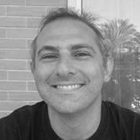 |
| KEYNOTE |
|
 |
| . |
|
|
Virgilio Mattoli
IIT, Italy
Keynote – Plenary Session
Virgilio Mattoli received his Laurea degree in chemistry (with honours) from the University of Pisa and the Diploma in Chemistry from the Scuola Normale Superiore of Pisa in 2000. In 2005 he received his PhD in bio-engineering (with honours) from Scuola Superiore Sant’Anna, with a thesis focused on the control and integration of miniaturized devices for environmental application. In summer 2004 he was visiting researcher at the University of Stanford, Center for Design Research, working on sensors and controls modules for biomimetic robotics applications. In 2005 and 2008 he was a short term visiting researcher at Waseda University (Tokyo, Japan) working on a bio-inspired mini-robot and on development of ultrathin freestanding polymeric films. From June 2008 to October 2009 he obtained a temporary position of Assistant Professor of bioengineer engineering at the Scuola Superiore Sant’Anna (SSSA). From November 2009 to July 2015, he has been a Team Leader of the Smart Materials Platform in the Center for Micro-BioRobotics of the Italian Institute of Technology (IIT). In August 2015, he obtained a permanent position as Researcher Technologist at the same center (now Center for Materials Interfaces). His main research interests include: smart nano- and bio-inspired materials, micro/nano-fabrication, soft/tattoo electronics, sensors, and biorobotics. He is currently involved in several research projects on these topics, including the EU FET Project 5D NanoPrinting of which he is the coordinator. He is author or co-author of more than hundred fifty articles on international journals, of more than about thirty-five invited talks, and of several conferences communications/proceedings and deposited patents.
|
|
|
|
|
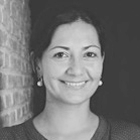 |
| KEYNOTE |
|
 |
| . |
|
|
Mariana Medina Sánchez
IFW Dresden, Germany
Keynote – Plenary Session
Dr. Mariana Medina Sánchez studied Mechatronics Engineering at the University of San Buenaventura, in Bogotá-Colombia, where she designed, simulated and fabricated a didactic automatic plastic injection machine for milli-metric parts moulding. After finishing her Diploma studies, she worked as assistant professor and researcher for almost 5 years at the same university, with both teaching and research responsibilities. In parallel she performed postgraduate studies on education and biomedical engineering. Then she moved to Spain to pursue her Master and PhD studies, under the supervision of Prof. Arben Merkoçi, at the Catalan Institute of Nanoscience and Nanotechnology (Barcelona-Spain), where she worked on the development of nanomaterials-based and inkjet-printed electrochemical biosensors for diverse disease diagnosis. After finishing her PhD Thesis, she joined the Leibniz Institute in Dresden-Germany (IFW Leinbiz), as postdoctoral researcher, where she worked in two main projects: the development of magnetically-actuated microcarriers for immotile sperm transport, and the development of ultrasensitive rolled-up microsensors for nucleic acid detection. After two years, she was promoted as group leader, under the mentoring of Prof. Oliver Schmidt. Since then, she has pushed forward the activities related to medical microrobots in particular toward in vivo assisted fertilization and targeted drug delivery, including optimal microbots designs, studies of sperm-based micromotors in complex environments and recently on the real time and deep-tissue tracking of those micromotors, which are key steps toward their application in living organisms. Recently, she was one of the selected researchers to be granted by the European Research Commission, in the Category of ERC Starting, and since 2020 she is independent group leader at the same Institute. This year she extended her research activities by a Joint Dresden Concept group constituted by both IFW Leibniz, the Center for Molecular Bioengineering (B CUBE) and Technische Universität Dresden to work on bioinspired medical microrobots and microsensors.
|
|
|
|
|
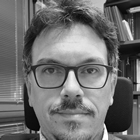 |
| INVITED |
|
 |
| . |
|
|
Salvo Mirabella
Universita´ di Catania, Italy
Invited – Plenary Session
SALVO MIRABELLA (Researcher ID: E-4672-2010) received his Physics MS (1999) and PhD degree (2003) from University of Catania (Italy). Since 2003 he did research in Experimental Condensed Matter Physics at CNR-IMM as a Researcher, then (2016) University of Catania as an Associate Professor. He is scientific responsible for ion beam laboratory (Singletron) and for NanoSPES (NanoSemiconductor PhotoElectrochemical Spectroscopy) lab. His research activity focuses on semiconductor nanostructures for Energy, Smart Sensing and Microelectronics (solid-liquid interface phenomena, light absorption in quantum structures, sunlight-energy conversion, low-cost nanostructures, ion beam modification of materials), with more than 220 papers, 3200+ citations, H- factor of 33 (Scopus, July 2022).
|
|
|
|
|
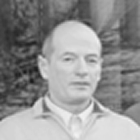 |
| INVITED |
|
 |
| . |
|
|
Vladimir Mirsky
Brandenburg University of Technology Cottbus - Senftenberg, Germany
Invited – Plenary Session
Vladimir M. Mirsky is Professor of Nanobiotechnology at the Brandenburg University of Technologies in Cottbus - Senftenberg, Germany. He graduated from Moscow Medical University in biophysics and went on to study physical chemistry and electrochemistry at the Frumkin Institute of Electrochemistry, obtaining there his Ph.D. in 1986. He subsequently held an Alexander von Humboldt Research Fellowship and a research position at CNRS prior to joining the Institute of Analytical Chemistry, Chemical Sensors and Biosensors at Regensburg University in 1995. After habilitation he became Professor of nanobiotechnology and moved to Brandenburg. He is (co)editor of three books and three special issues. His work has led to about 20 patents and patent applications and over 150 scientific papers. Scientific activity of Prof. Mirsky is focused on the development of new chemical sensors (for example, based on the surface plasmon resonance, wide-field surface plasmon microscopy of nanoparticles and electrochemical chemotransistors) and sensor-related surface technologies.
|
|
|
|
|
 |
| INVITED |
|
 |
| . |
|
|
Tarja Nevanen
VTT, Finland
Invited – Plenary Session
Tarja K. Nevanen earned her PhD in Biochemistry at the University of Helsinki (2004). She has been working at VTT in different positions and research groups, currently as Principal Scientist in the Biosensors team. She has been active in discovering and engineering of recombinant antibodies for e.g. rapid diagnostics, immunobiosensors, nanobiomaterials and miniaturized sample preparation. Application areas of interest range from clinical diagnostics to food safety and environmental issues.
|
|
|
|
|
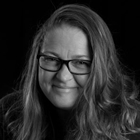 |
| SCHOOL |
|
 |
| . |
|
|
Ciara O´Sullivan
URV, Spain
Speaker - School
Ciara O' Sullivan received a BSc in Analytical Chemistry from Dublin City University in 1992, a PhD in Biotechnology from Cranfield University in 1996 and then went on to lead the sensors group at University College Cork from 1996-99. She then took up a Marie Curie Fellowship at the Universitat Rovira i Virgili (1999-2001) and was then awarded a Ramón y Cajal Fellowship which she pursued for 1 year prior to taking up her current position as ICREA Research Professor and establishing the Nanobiotechnology and Bioanalysis Group at the Universitat Rovira i Virgili. She is group leader of the GENCAT funded Consolidated Group INTERFIBIO
|
|
|
|
|
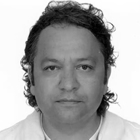 |
INVITED
Industrial Forum |
|
 |
| . |
|
|
Lutfi Oksuz
Suleyman Demirel University, Turkey
Invited - Industrial Forum
Born in Isparta Turkey, Prof Dr Lutfi Oksuz got his BSc from Hacettepe Nuclear Energy Engineering Department in 1991 and In 1993, he entered Suleyman Demirel University, Faculty of Arts and Sciences, Department of Physics as a research assistant, and in 1995 he won the YOK scholarship abroad and moved for his master's degree and PhD at the University of Wisconsin, Madison Nuclear Engineering dept. The dissertation topic of his doctoral study "The characteristics of the layer and prelayer in DC plasmas" has been evaluated as a critical study in important journals. He worked as a researcher at the University of Wisconsin between 1997 and 2000He did post-doctoral studies at Oxford Research Unit in England in 2001 and did post-doctoral studies at Dublin City University, Ireland in 2004. Between 2001-2012, he worked in NASA, DOE, NSF, Airforce projects with the titles of visiting professor, honorary professor at the USA University of Wisconsin Madison every summer. Since 2013, he has been working as an Professor in Suleyman Demirel University, Faculty of Arts and Sciences, Department of Physics. Nearly 50 articles have been published in important scientific journals and have received more than 2000 citations. He has given more than 200 conference papers and scientific lectures and presentations as an invited speaker in nearly 30 national and international institutions. He has consulted various holdings and companies on industrial applications of energy and plasma and has international patents on plasma systems. He has worked as a manager or researcher in projects such as TUBITAK, DPT, European Union, DOE, NASA, Intel, LAM, NSF, TEYDEB. On the other hand, he worked as a referee in the same institutions and still continues to act as a referee in FP7 European Union Marie Curie projects and SPACE (SPACE) projects. At the same time, he continues to work as a referee in important scientific journals. He is a member of APS American Physical Society, IEEE plasma, IEEE Nuclear. He was elected as the chair of the 2015 IEEE ICOPS conference and led the organization of this great event in Turkey. In addition to this, he organized a COST workshop. Suleyman completed his master's and doctorate students at Demirel University and established the plasma laboratory. On the other hand, two companies were established in Teknokent and these companies conduct researches and produce scientific devices. PhD and master's students work in these companies. Lutfi Oksuz gave a seminar at the Chinese Academy of Sciences (CAS) to which he was invited, and has been working on the development of bilateral relations with China on nuclear and plasma subjects. An agreement has been made with the Nuclear University in Ukraine on the subject of nuclear. Lutfi Oksuz's areas of interest can be listed as nuclear technologies, nuclear reactors, energy, fission, fusion, solar energy, plasma physics, vacuum, nanotechnology, thin film technologies, smart glasses, sensors, space technologies, space sensors, high power high frequency systems.
|
|
|
|
|
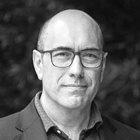 |
| KEYNOTE |
|
 |
| . |
|
|
Pablo Ordejon
ICN2, Spain
Keynote – Plenary Session
Prof. Pablo Ordejón earned his degree in physics (1987) and his PhD in science (1992) at the Universidad Autónoma de Madrid. He worked as a postdoctoral researcher at the University of Illinois at Urbana-Champaign (USA) from 1992 to 1995 and as assistant professor at the Universidad de Oviedo from 1995 to 1999. In 1999, he obtained a research staff position at the Institut de Ciència de Materials de Barcelona of the Consejo Superior de Investigaciones Científicas (CSIC). In 2007 he moved to the former CIN2 (now ICN2) as the leader of the Theory and Simulation Group, where he is currently a CSIC Research Professor. Since July 2012 he has served as Director of the ICN2.
|
|
|
|
|
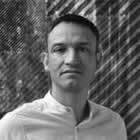 |
| INVITED |
|
 |
| . |
|
|
Jahir Orozco Holguin
Universidad de Antioquia, Colombia
Invited – Plenary Session
Jahir Orozco Holguín is Group Leader of the Max Planck Tandem Group in Nanobioengineering (MPTG-N), at the University of Antioquia, Colombia. He is a Chemist from the University of Antioquia and Ph.D. from the University of Barcelona and Institute for Microelectronics of Barcelona (Spain), 2008. He spent a year as a postdoc at the Observatoire Oceanologique de Banyuls sur Mer (Université Pierre et Marie Curie, France), training in molecular tools for pathogens monitoring and 4 years as a postdoc at the Department of Nanoengineering in UCSD (USA) developing nanomotors for biomedical and environmental applications. After being a Severo Ochoa Excellence Fellow at the Catalan Institute for Nanoscience and Nanotechnology for 1.5 years, he started the MPTG-N, at the University of Antioquia. His areas of interest include nanobiotechnology, nanomotors, nanocarriers, electrochemistry, chemical (bio)sensors, nano(micro)devices, and development of analytical tools for environmental and clinical applications.
|
|
|
|
|
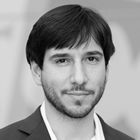 |
| SCHOOL |
|
 |
| . |
|
|
Gabriel Ortega
CIC bioGUNE, Spain
Speaker - School
My research to date has sought to expand our understanding of the biophysical mechanisms that underlie biomolecular function, harnessing this fundamental knowledge to understand biological estions and to improve biomedical and biotechnological applications. To achieve that, I use a combination of analytical chemistry, molecular biophysics, and bioengineering, along with some Nature-inspired tools and designs. As an independent researcher, the goal of my lab at CIC bioGUNE (Bilbao, Spain) is to pursue the development of new biosensing tools, as well as their application in personalized medicine, the study of metabolism and metabolic disorders, and disease treatment and prevention.
|
|
|
|
|
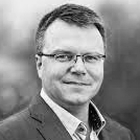 |
| KEYNOTE |
|
 |
| . |
|
|
Michal Otyepka
Regional Centre of Advanced Technologies and Materials, Czech Republic
Keynote – Plenary Session
Prof. Michal Otyepka, Ph.D. (*1975) is Head of CATRIN-RCPTM a research division at Palacký University in Olomouc. His research interests cover physical-chemical properties and reactivity of graphene derivatives and 2D materials, non-covalent interactions to 2D materials, and photoluminescent properties of carbon dots (CDs). He has been developing chemistry of fluorographene (2D chemistry) toward graphene derivatives, which can be applied in (bio)sensing, catalysis and energy storage. He specializes also in modelling of biomolecules, nanomaterials, and complex molecular systems, and development of force fields, multiscale methods, and their applications. He is the principal investigator of ERC – Consolidator, 2D-Chemistry (2016-2021), two ERC Proof of Concept grants. He is the author or co-author of more than 300 papers in international journals, three book chapters and one book
|
|
|
|
|
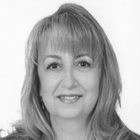 |
| KEYNOTE |
|
 |
| . |
|
|
Sibel A. Özkan
Ankara University, Turkey
Keynote – Plenary Session
Sibel A. Ozkan is currently working as a Full Professor of Analytical Chemistry at Ankara University, Faculty of Pharmacy. She is the active member of European Chemical Society-DAC member on behalf of Turkish Chemical Society. She is the member of European Pharmacopoeia-EDQM- Chromatography Section. She is the member of PortASAP: - European network for the promotion of portable, affordable and simple analytical platform: Core group of Cost Action CA 16215. Working Group 4. She has published more than 385 original and review papers and Editor of 9 scientific books from HNB Publishing (2012), Springer (2015), Bentham (5 Volumes, 2018-2019), Elsevier (2019), CRC (2022) and more than 50 book chapters in different years (for Elsevier and Springer). She received Ankara University Encouragement Award (2003), Turkish Pharmacists Association-Scientific Award (2008), Supervisor of The Best PhD Thesis Award (Health Sciences) in Turkey from High Council of Education of Turkey in 2017, Ton Duc Thang University Woman in Science 2019 Award (Vietnam) and Ankara University Science Award (2021). She is the Editor of the Journal of Pharmaceutical and Biomedical Analysis (SCI) and Regional Editor (Europa) of Current Pharmaceutical Analysis (SCI). In addition, she is an Editorial Board member of Talanta (SCI), Chromatographia (SCI), Biosensors&Bioelectronics X and other journals.
|
|
|
|
|
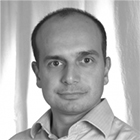 |
| KEYNOTE |
|
 |
| . |
|
|
Vincenzo Palermo
CNR-ISOF, Italy
Keynote – Plenary Session
Vincenzo Palermo is the director of the CNR Institute for Organic Synthesis and Photoreactivity (ISOF) in Bologna, Italy, and associated professor of Chalmers University of Technology (Sweden). He uses nanotechnology and supramolecular chemistry to create new materials for electronics, aerospace and biomedical applications, collaborating with key industrial partners in Europe (Airbus, FCA, Leonardo, BASF, Nokia, STMicroelectronics etc.). He has been awarded the Lecturer Award for Excellence of the Federation of European Materials Societies (FEMS), the Research Award of the Italian Society of Chemistry (SCI) and the Science dissemination awards of the Italian Book Association. He writes as a columnist for the science magazine SAPERE and has published two books on the life and science of Albert Einstein (Hoepli, Milano, 2015) and of Isaac Newton (Hoepli, Milano, 2016).
|
|
|
|
|
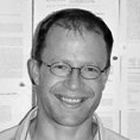 |
| INVITED |
|
 |
| . |
|
|
Egon Pavlica
University of Nova Gorica, Slovenia
Invited – Plenary Session
Egon Pavlica holds a PhD in Physics (2006) from University of Nova Gorica (UNG). During his study he setup a unique time-of-flight photoconductivity setup in coplanar electrode configuration and devised theoretical models to interpret obtained measurements. His post-doctoral career has been spent on QCM based biosensors and protein immobilization on MoS nanowires at INFM S3 at University of Modena and Reggio Emilia (Italy). In 2022 he became a head of the Laboratory of Organic Matter Physics at UNG. He is involved in lecturing at UNG and also in transient photoconductivity measurements of organic semiconductors and two-dimensional materials. Lately, his research interests advanced toward physics of mixed ionic-electronic charge transport
|
|
|
|
|
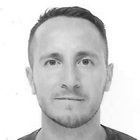 |
| SCHOOL |
|
 |
| . |
|
|
Andrew Piper
ICN2, Spain
Speaker - School
Dr Piper did his undergraduate degree in Medicinal and Biological Chemistry at the University of Edinburgh. He stayed at the University of Edinburgh for his PhD where he developed nanoelectrode arrays for Methicillin Resistant Staphylococcus aureus (MRSA). He has held postdoctoral positions at the University of Oxford developing biosensors for Parkinson´s disease, at the Royal Institute of Technology (KTH), in Stockholm, developing wearable textile biosensors; and at the Karolinska Institute working on covid-19. He currently works as a senior postdoctoral researcher in the Merkoci group at the Catalan Institute of Nanoscience and Nanotechnology (ICN2) where he is involved in various biosensor development projects
|
|
|
|
|
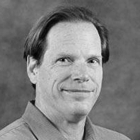 |
| KEYNOTE |
|
 |
| . |
|
|
Kevin Plaxco
UC Santa Barbara, USA
Keynote – Plenary Session
Kevin Plaxco is a Professor at the University of California, Santa Barbara, with appointments in the Department of Chemistry and Biochemistry, the Department of Mechanical Engineering, the Biomolecular Science and Engineering Graduate Program, and the Biological Engineering Graduate Program. Dr. Plaxco’s research focus is on the physics of biomolecular folding and its engineering applications. A major aim of the group’s applied research is to harness the speed and specificity of folding in the development of sensors, adaptable surfaces, and smart materials. Dr. Plaxco has co-authored more than 230 papers and a dozen patents on protein folding, protein dynamics, and folding-based sensors. He serves on the scientific boards of a half dozen biotechnology firms, several of which are commercializing technologies developed by his group.
|
|
|
|
|
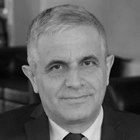 |
| INVITED |
|
 |
| . |
|
|
Fetah Podvorica
University of Prishtina, Republic Kosovo
Invited – Plenary Session
Fetah Podvorica is Professor of Physical Chemistry at the University of Prishtina and Corresponding Member of Academy of Sciences and Arts of Kosova. Since 2014 he has been visiting professor at University of Paris, former University of Paris 7, and previously was visiting professor at Ecole Superieure de Physique et de Chimie de Paris (ESPCI); during the period 2003-2013. He did his PhD thesis at the University of Paris 7 in 2000 and his Habilitation he obtained in 2010 at the University of Paris 6. His research interests include: electrochemical or chemical modification of material’s surfaces with 2D organic thin layers and their use for different applications; the use of Electro-Fenton method for the degradation of organic pollutants in waste water. He has 2 patents, 2 book chapters, 45 published papers in peer review journals, H index: 23 and over 4800 citations (scholar). He is Associate Editor in the Springer journal, Chemistry Africa
|
|
|
|
|
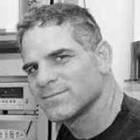 |
| KEYNOTE |
|
 |
| . |
|
|
Danny Porath
The Hebrew University of Jerusalem, Israel
Keynote – Plenary Session
Prof. Danny Porath Studied for BSc in Physics, Mathematics and Electronics at the Hebrew University. Received his Ph.D in Physics from the Hebrew University in 1997. Did his postdoc at Delft University of Technology with Prof. Cees Dekker and established his group at the Institute of Chemistry of The Hebrew University of Jerusalem in 2001. The group research interests include: DNA-Based Nanoelectronics, scanning probe microscopy and spectroscopy of single molecules, electrical transport measurements in single molecules, nanoelectronics, DNA sequencing and biomarker detection. Member of the Editorial Board of “Self Assembly and Molecular Electronics and of “Scientific Report” from Nature Publishing Group. Received excellent postdoctoral award of the American Vacuum Society Meeting, Boston 2000, and The Israel Chemical Society Prize for the Outstanding Young Scientist in 2007. Holds the Etta and Paul Schankerman Chair of Molecular Biomedicine since 2014. Served as the Director of the Hebrew University Center for Nanoscience and Nanotechnology 2011-2014. Currently serves and the Vice Dean Research of the Faculty of Science.
|
|
|
|
|
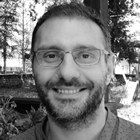 |
| SCHOOL |
|
 |
| . |
|
|
Alessandro Porchetta
University of Rome, Tor Vergata, Italy
Speaker - School
Prof. Porchetta (38 year) is Associate Professor at the Department of Sciences and Chemical Technologies of 'University of Rome "Tor Vergata". He published 39 papers in ISI peer-reviewed journals (18 papers in journals with impact factor (IF) > 10 (6 JACS + 2 Nano Letters + 1 NAR + 1 Acc. Chem. Res. + 4 Ang. Chem. Int. Ed.) a H-index of 20. In 2018 Prof. Porchetta was awarded the prestigious European Young Chemist 2018 at the post-doctoral level. He was awarded also other national awards (Premio Levi, etc.). Prof. Porchetta currently holds two Horizon-2020 RISE-Marie Skłodowska-Curie projects. His research activities currently lie in the fields of DNA nanotechnology, CRISPR-Casdiagnostics and supramolecular hybrid nanomaterials for theranostic applications.
|
|
|
|
|
 |
| KEYNOTE |
|
 |
| . |
|
|
Beatriz Prieto-Simon
ICREA/URV, Spain
Keynote – Plenary Session
Dr Beatriz Prieto-Simón is an ICREA Research Professor working at the University Rovira i Virgili (Spain). Her research in the multidisciplinary domain of bioinspired nanotechnologies covers the design, micro- and nanofabrication, and surface chemistry of emerging nanostructures to be integrated into diagnostic devices fit-for-purpose. She is conducting research on Si-based nanotechnologies, such as the fabrication of arrays of parallel double-layered nanochannels with site-specifically displayed receptors, and tunable electrochemical features. Her key research interest lies in unveiling fundamental advances on synergies at the interface of nanostructured materials (multi-layered porous structures) and biological processes. Her research aims to lay the foundation for building smart platforms based on principles found in nature to strengthen the scientific and societal impact of their medical and environmental applications.
|
|
|
|
|
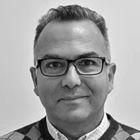 |
| INVITED |
|
 |
| . |
|
|
Mamas Prodromidis
University of Ioannina, Greece
Invited – Plenary Session
Prof. Mamas (Mamantos) Prodromidis is a full professor of Analytical Chemistry in the Department of Chemistry of the University of Ioannina, Greece. His research interest are focused on the development of voltammetric and impedimetric sensors and biosensors, the generation of nanoparticles with spark discharge, the development of low-cost medical diagnostic devices for point-of-care applications, the design & fabrication of screen-printing electrodes and analytical devices based on bipolar electrochemistry.
|
|
|
|
|
 |
| INVITED |
|
 |
| . |
|
|
Mar Puyol Bosch
UAB, Spain
Invited – Plenary Session
Mar Puyol completed her PhD in Analytical Chemistry in 2002 from the Universitat Autònoma de Barcelona on optical waveguides. She did a Postdoc on miniaturized optical instrimentation in the Applied Physics Department of the Universidad de Zaragoza and is currently Associate Professor from the Chemistry Department and member of the Sensors and Biosensors Group in the Universitat Autònoma de Barcelona. She is author of more than 45 papers on the field of chemical sensors. Her research interests include the study and characterization of new chromo(fluoro)ionophores and its integration as recognition elements in miniaturized optochemical sensors, the development of potentiometric and optical microsystems for chemical analysis (μTAS) based on LTCC, polymer and IC technologies and its application in environmental, agri-food, space and biomedical fields, and the fabrication of microreactors for the synthesis of nanomaterials and fuurther development of (bio)chemical miniaturized analyzers based on the use of the obatined nanostructured materialbe s
|
|
|
|
|
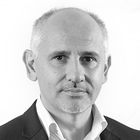 |
| KEYNOTE |
|
 |
| . |
|
|
Stephan Roche
ICREA/ICN2, Spain
Keynote – Plenary Session
Prof. Stephan Roche is a theoretician with more than 25 years’ experience in the study of transport theory in low-dimensional systems, including graphene, carbon nanotubes, semiconducting nanowires, organic materials and topological insulators. He has published more than 250 papers in journals such as Nature, Review of Modern Physics, Nature Physics, Nano Letters and Physical Review Letters and he is the co-author of the book titled “Introduction to Graphene-Based Nanomaterials: From Electronic Structure to Quantum Transport” (Cambridge University Press, 2020-second edition). He received the qualification to supervise PhD students from the Université Joseph Fourier (Grenoble, France) in 2004, and since then he has supervised more than ten PhD students and about 25 postdoctoral researchers in France, Germany and Spain. In 2009 Prof. Roche was awarded the Friedrich Wilhelm Bessel Research Award by the Alexander Von-Humboldt Foundation (Germany) and, since 2011, he has been actively involved in the European Graphene Flagship project as deputy leader of the Spintronics Work Package (WP). He is serving as leader of this WP since April 2020 and will continue until March 2023. He is also Division Leader of the Graphene Flagship.
|
|
|
|
|
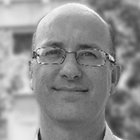 |
| KEYNOTE |
|
 |
| . |
|
|
Javier Rodríguez-Viejo
ICN2-UAB, Spain
Keynote – Plenary Session
Javier Rodríguez-Viejo is Full Professor of Applied Physics at the Autonomous University of Barcelona (Universitat Autònoma de Barcelona, UAB) and leads the Group of Thermal Properties of Nanoscale Materials at the UAB and the ICN2. He performed the experimental part of his doctoral thesis at the Institut des Materiaux et Procedés CNRS, France and received his PhD in Physics from UAB in 1992. He continued his studies as a postdoctoral researcher at the Massachusetts Institute of Technology, working with Prof. Klavs F. Jensen (Chemical Eng. and Material Science Dep.) and Prof. M.G. Bawendi (Chemistry Dep.) on the synthesis of highly-luminescent CdSe(ZnS) quantum dots and the deposition of thin film quantum dot composites by electrospray organometallic chemical vapor deposition. His research in this field resulted in several patents and papers, one of which is among the most highly cited papers in semiconductor nanoparticles. In May 1997 he was appointed Associate Professor of Applied Physics at the Physics Department of UAB and in 2011 became Full Professor at the same university. He has been visiting scientist at Air Products in Allentown, US (July-August 2008) and Harvard University (May-September 2016).
|
|
|
|
|
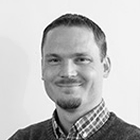 |
| SCHOOL |
|
 |
| . |
|
|
Giulio Rosati
ICN2, Spain
Speaker - School
Giulio Rosati is a biomedical engineer with a PhD in Biotechnology. Currently he is a postdoc researcher in Prof. Arben Merkoçi’s group at the Catalan Institute of Nanoscience and Nanotechnology (ICN2) in Bellaterra, Barcelona. His research is focused on electrochemical biosensors for healthcare, wearable, environmental, and food safety applications. Dr. Rosati has a particular interest on inkjet printing techniques for the fabrication of sensors, biosensors, and flexible electronics. He develops these technologies studying innovative nanofunctional inks, materials, and substrates. During his career Dr. Rosati worked for companies, spin-offs, universities, and public and private research institutions. He participated to several business competitions with biosensing technologies. Recently, he published an important review about the bottlenecks in the path from an idea to the market in the same field. Dr. Rosati has a particular interest about technology transfer and implementation science.
|
|
|
|
|
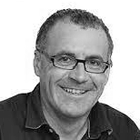 |
| KEYNOTE |
|
 |
| . |
|
|
Daniel Ruiz-Molina
ICN2-CSIC, Spain
Keynote – Plenary Session
Daniel Ruiz-Molina got his PhD in Chemistry on molecular materials at the Institut de Ciència de Materials de Barcelona (ICMAB-CSIC) and a postdoctoral position at the University of California San Diego (USA), where he spent three years working on molecular switches. Since 2001 he holds a permanent position as a Spanish National Research Council researcher and since 2008 as a group leader of the Nanostructured Functional Materials Group at ICN2 as a Full Professor. His group is internationally recognized using functional (supra)molecular and polymeric nanomaterials in medicine and environmental applications. Some numbers that support his activity are more than 200 publications in well-recognized international journals, several international meeting invitations and supervision of PhD students and postdocs. Beyond fundamental research, his group is committed to bring new lab discoveries as close as possible to the market through several patents, most of them already licensed to large companies or Spin-off (the group has already created 3 spin-offs and a fourth one coming this year). Beyond that, we have established several collaborations with SMEs and large companies translated in several projects and contracts and the establishment of new laboratories to scale up functional nanomaterials.
|
|
|
|
|
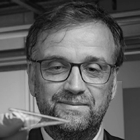 |
| KEYNOTE |
|
 |
| . |
|
|
Oliver Schmidt
TU Chemnitz, Germany
Keynote – Plenary Session
Oliver G. Schmidt is the Scientific Director of the Research Center for Materials, Architectures and Integration of Nanomembranes (MAIN) and holds a Chair for Material Systems for Nanoelectronics at the Chemnitz University of Technology, Germany. He is adjunct Professor of Nanophysics at the Dresden University of Technology, Germany and Honorary Professor at the Fudan University in Shanghai, China. He is an elected member of the German Academy of Science and Engineering. He has received several awards: the Otto-Hahn Medal from the Max-Planck-Society in 2000, the Philip-Morris Research Award in 2002 and the Carus-Medal from the German Academy of Natural Scientists Leopoldina in 2005. In 2013 he was awarded the International Dresden Barkhausen Award, in 2018 he received the Gottfried Wilhelm Leibniz-Prize of the German Research Foundation, and in 2019 he was awarded an Advanced Grant of the European Research Council (ERC). His professional activities bridge across several research fields, ranging from flexible electronics and energy storage devices to small scale robotics and biomedical applications.
|
|
|
|
|
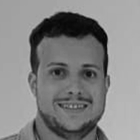 |
| SCHOOL |
|
 |
| . |
|
|
Amadeo Sena
IDM (UPV), Spain
Speaker - School
Amadeo Sena Torralba is a postdoctoral researcher at the Interuniversity Research Institute for Molecular Recognition and Technological Development (IDM) at the Polytechnic university of Valencia (Spain). He received his Ph.D. in Biotechnology under the supervision of Prof. Arben Merkoçi at the Catalan Institute of Nanoscience and Nanotechnology in 2020. He received in 2021 the “Elvira Rodenas Ciller” award by the GECI group of the Spanish Royal Society of Chemistry and Physics, to the best PhD thesis related to colloid and interface science. In 2022 he was awarded with the “Juan de la Cierva-Formación” postdoctoral fellowship from the Spanish Government. His current research focuses on the development of highly sensitive and multiplexed nanobiosensing platforms with direct applicability at the point of care.
|
|
|
|
|
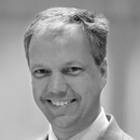 |
| KEYNOTE |
|
 |
| . |
|
|
Carsten Sönnichsen
University of Mainz, Germany
Keynote – Plenary Session
Carsten Sönnichsen, born 1973 in Hamburg (Germany), studied physics in Hamburg and Cambridge. In 2001, he received his Ph.D. from the Ludwig-Maximilians University (LMU) in Munich, Germany (working in the group of Jochen Feldmann). Following his experience in an international management consulting company in Munich, Germany, he joined the Paul Alivisatos group in Berkeley as a postdoc. In 2005, he started his own group at the University of Mainz where he now holds a chair in physical chemistry. The group emphasizes on the production and application of nanoparticles as markers and sensors for biological molecules.
|
|
|
|
|
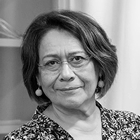 |
| KEYNOTE |
|
 |
| . |
|
|
Clivia Sotomayor
ICN2, Spain
Keynote – Plenary Session
ICREA Research Prof. Dr Clivia M. Sotomayor Torres was awarded her PhD in physics in 1984 by the University of Manchester (UK). She then held tenured academic appointments at the University of St. Andrews and the University of Glasgow in the UK, before becoming a C4 professor at Universität Wuppertal (Germany) in 1996. She was a research professor at the Tyndall National Institute, University College Cork (Ireland), from 2004 to 2008. Since May 2007 she has been an ICREA Research Professor based at the Catalan Institute of Nanoscience and Nanotechnology (formerly, the ICN). She has received awards from the Royal Society of Edinburgh, the Nuffield Foundation and an Amelia Earhart Fellowship from Zonta International (USA). In 2020 she was awarded an ERC Advanced Grant to lead a five-year project (starting in January 2021) aiming at developing a disruptive technology based on phononic interconnects to reduce energy consumption of electronic circuits.
|
|
|
|
|
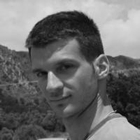 |
| INVITED |
|
 |
| . |
|
|
Marko Spasenović
Institute of Chemistry, Technology and Metallurgy, Serbia
Invited – Plenary Session
Dr. Marko Spasenovic is an Associate Research Professor with the Institute for Chemistry, Technology and Metallurgy, University of Belgrade. His main current lines of research are sensors based on 2D nanomaterials and graphene microphones. He completed his undergraduate education in Engineering Physics at Carleton University in Canada, followed by a MSc in Physics at the University of Toronto. He completed his PhD at AMOLF in Amsterdam and the University of Twente, the Netherlands. Subsequently, he held two postdoc positions at ICFO near Barcelona, Spain. Marko published a number of highly cited papers in renowned international journals (including three papers in Nature journals) and gave keynote and invited talks at international conferences.
|
|
|
|
|
 |
| INVITED |
|
 |
| . |
|
|
Winnie Edith Svendsen
DTU, Denmark
Invited – Plenary Session
Dr. W. E. Svendsen completed her master degree in experimental physics with honors in 1993 from the University College Dublin, within atomic spectroscopy. She received her doctorate in atomic physics studying the properties of solid deuterium by laser ablation and sputtering in 1996 from Copenhagen University, Denmark. Thereafter she accepted a postdoctoral position at the Max Planck Institute for Plasma physics, Garching, Germany. She returned to Denmark in 1998 and was appointed Associate Professor at Copenhagen University in 1999. Since 2001 she has been involved with applied research and her current research focus is on understanding the physical properties of biological material to optimize the use of micro and nanotechnology in the biomedical field. In 2006 she established her own research group Nano Bio Integrated Systems (NaBIS). Winnie has more than 70 publications in international journals. She has received several grants and awards (EOLAS award & Marie Curie stipend for excellent research, National research grants and European grants (FP 5, 6 & 7). She was also the co-founder of company XeHe Hypol (APS).
|
|
|
|
|
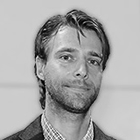 |
| KEYNOTE |
|
 |
| . |
|
|
Klaas-Jan Tielrooij
ICN2, Spain
Keynote – Plenary Session
Klaas-Jan Tielrooij is Senior Group Leader at the Catalan Institute of Nanoscience and Nanotechnology (ICN2, Spain), heading the Ultrafast Dynamics in Nanoscale Systems group. He is also an associate professor at Eindhoven University of Technology (TU/e, the Netherlands). He obtained his Ph.D. at the University of Amsterdam (the Netherlands) in December 2010 with a thesis that was awarded the FOM Physics Thesis Prize 2011. He was awarded several grants, including an ERC Starting Grant in 2018, a Ramon y Cajal Fellowship in 2019 and an ERC PoC in 2022. He is the coordinator of a Flagera project associated with the Graphene Flagship. Dr. Tielrooij has more than 55 peer-reviewed publications and over 7,000 citations. His H-index is currently 33 (Google scholar). His current research focuses on understanding and exploiting ultrafast phenomena that take place at the nanoscale. These phenomena have far-reaching implications in terms of material and system properties, as well as technological applications in fields such as thermal management, light harvesting, photodetection, data communication and quantum technologies.
|
|
|
|
|
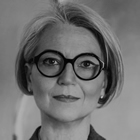 |
| KEYNOTE |
|
 |
| . |
|
|
Luisa Torsi
Università degli Studi di Bari Aldo Moro, Italy
Keynote – Plenary Session
Luisa Torsi is a professor of chemistry at the University of Bari and adjunct professor at Abo Academy University in Finland. In 2010 she was awarded with the H.E. Merck prize and she is also the winner of the Wilhelm Exner Medal 2021. Torsi has authored 220 papers, published also in Science and Nature journals. Her works gathered almost 15.000 Google scholar citations resulting in an h-index of 59.
|
|
|
|
|
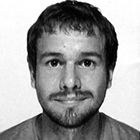 |
| SCHOOL |
|
 |
| . |
|
|
Massimo Urban
ICN2, Spain
Speaker - School
Massimo Urban is a chemist with a master degree in Nanostructured materials. Currently he is a PhD student in Prof. Arben Merkoçi’s group at the Catalan Institute of Nanoscience and Nanotechnology (ICN2) in Bellaterra, Barcelona, under the supervision of Dr. Rosati. His research focuses on the development of platforms and study functional nanomaterials for applying in electrochemical biosensors, with several fabrication techniques as inkjet printing.
|
|
|
|
|
 |
| INVITED |
|
 |
| . |
|
|
Aysegul Uygun Oksuz
Suleyman Demirel University, Turkey
Invited – Plenary Session
Aysegul Uygun Oksuz is a Professor in Chemistry Department, Suleyman Demirel University, Isparta/Turkey. She graduated from Department of Chemistry, 19 May University, Turkey in 1993 and received PhD- degree from Gazi University, Ankara-Turkey (2002). Prof Uygun Oksuz studied at Osaka University, South of Florida (US), University of California-San Diego (US), Wisconsin University (US) and Freiburg University (Germany), as a post-doctoral research scientist in 2019, 2008, 2011, 2013, 2004. Her research is focused onto the synthesis and characterization of conducting polymer composites including different metal nanoparticles, metal oxides and carbon nanomaterials using chemical, electrochemical and plasma techniques. These materials have been used in electrochromic devices, nano/micromotors, nanofibers and biosensors applications. She has published around 140 published papers in international and national journals; she joined over 160 conferences and symposia in international and national level, h-index 28.
|
|
|
|
|
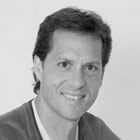 |
| KEYNOTE |
|
 |
| . |
|
|
Sergio O. Valenzuela
ICREA-ICN2, Spain
Keynote – Plenary Session
Prof. Sergio Valenzuela obtained his PhD in Physics in 2001 at the Universidad de Buenos Aires (Argentina) and held research positions at Harvard University and the Massachusetts Institute of Technology (MIT). In July 2008, he became an ICREA Research Professor and Leader of the ICN2 Physics and Engineering of Nanoelectronic Devices Group. His research focuses on the unique properties of materials with nanoscale dimensions, motivated by both their intrinsic scientific interest and their potential for advanced electronic applications in the fields of spintronics, thermoelectricity, in quantum technologies and metrology. He was awarded the 2001 Giambiagi Prize, the 2009 IUPAP Young Scientist Prize in Magnetism as well as an ERC Starting Grant in 2012. He was elected member of the Academia Europaea in 2022.
|
|
|
|
|
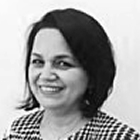 |
| INVITED |
|
 |
| . |
|
|
Majlinda Vasjari
University of Tirana, Albania
Invited – Plenary Session
|
|
|
|
|
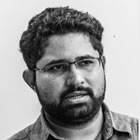 |
| KEYNOTE |
|
 |
| . |
|
|
Aravind Vijayaraghavan
The University of Manchester, UK
Keynote – Plenary Session
Aravind Vijayaraghavan is Professor of Nanomaterials at The University of Manchester, where he leads the Nanofunctional Materials Group. His research focuses on the development of novel applications of 2-dimensional materials and the underpinning science. He has published over 100 papers in international journals, filed 7 patents and established 2 spin-out companies, Grafine Ltd and Atomic Mechanics Ltd. He is also the faculty Head of Business Engagement in Advanced Manufacturing.
|
|
|
|
|
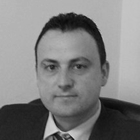 |
| INVITED |
|
 |
| . |
|
|
Kledi Xhaxhiu
University of Tirana, Albania
Invited – Plenary Session
|
|
|
|
|
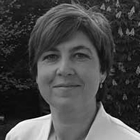 |
| INVITED |
|
 |
| . |
|
|
Chiara Zanardi
Università Cà Foscari di Venezia, Italy
Invited – Plenary Session
Prof. Chiara Zanardi is full professor in Analytical Chemistry at the Ca’ Foscari University of Venice (IT) and associated to the Institute for the Organic Synthesis and Photoreactivity of the National Research Council. She obtained the master’s degree in Industrial Chemistry at the University of Bologna (IT) in 1998 and the PhD in Chemical Sciences at the University of Modena and Reggio Emilia (IT) in 2002. Her research interests are particularly focused in the use of nanomaterials for the realization of electrochemical sensors and biosensors for the quantification of meaningful analytes in environmental matrices and biological fluids. She is the co-author of about 90 papers printed on peer-review journals, one book and three book chapters dealing with modified electrodes in electroanalysis.
|
|
|
|
|
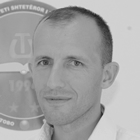 |
| INVITED |
|
 |
| . |
|
|
Bashkim Ziberi
University of Tetova, Republic of North Macedonia
Invited – Plenary Session
|
|
|
|
|
 |
| INVITED |
|
 |
| . |
|
|
Erhan Zor
Necmettin Erbakan University, Turkey
Invited – Plenary Session
Dr. Erhan Zor is an Associate Professor at Necmettin Erbakan University, Turkey. He received his Ph.D. in chemistry from Selçuk University in the topic of electrochemical chiral discrimination based on graphene-related materials. During his Masters and Ph.D., he had worked as visiting researcher at European research centers in the field of nano(bio)sensors; at Nanotechnas-Nanotechnology and Material Research Center at Vilnius University in Vilnius, Lithuania, and at the Catalan Institute of Nanoscience and Nanotechnology (ICN2) in Barcelona, Spain. Dr. Zor has published more than 40 SCI papers, book chapters and, review articles relevant to his scientific research field. His current research interest is focused on graphene, nanocellulose, chiral sensors, (nano)biosensors, optical sensors, electrochemical sensors, paper-based diagnostics, biomedical diagnostics.
|
|
|
|
|
| |
|
|
|
|
|
|
|
© Phantoms Foundation 2022 |
|
|
|